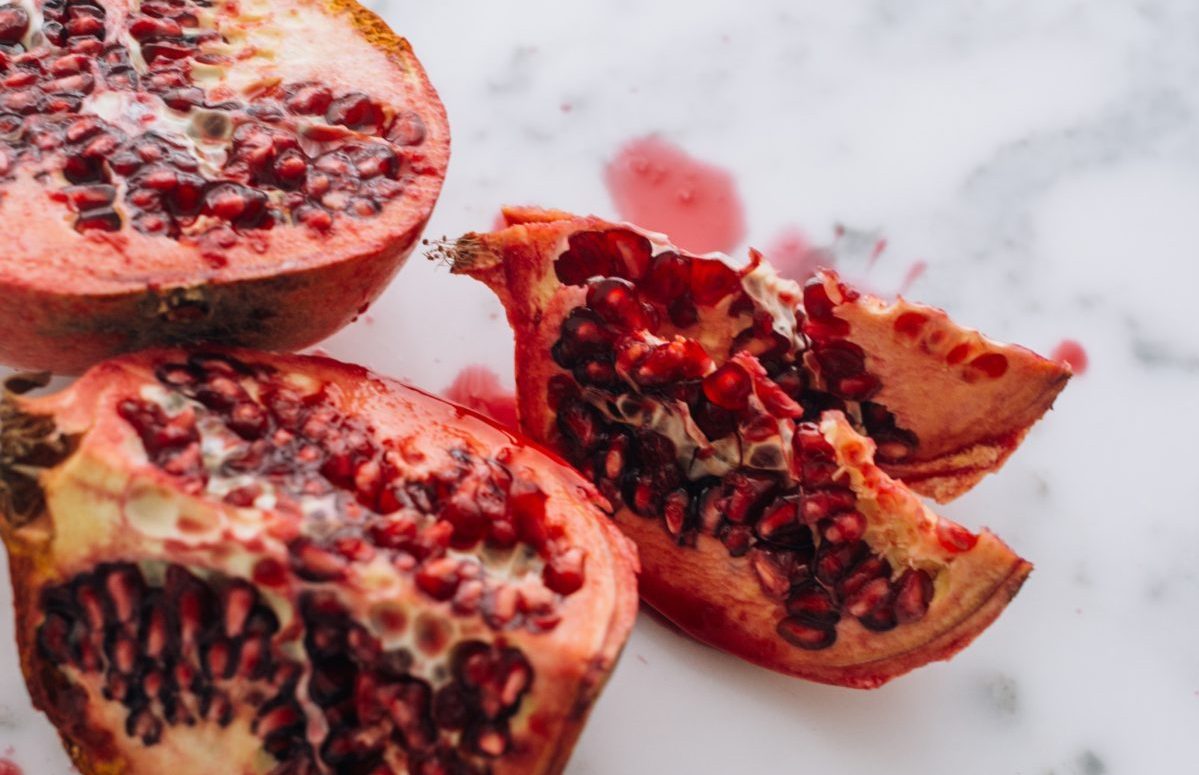The Benefits of Pomegranate & Why You Should Add Them to Your Diet

Photo by Charles Deluvio on Unsplash
Few other fruits have as rich a history as the pomegranate. Pomegranates have been used medicinally and as a symbol of fertility, abundance, prosperity and new beginnings. There is evidence that can trace the cultivation of pomegranates back over 5000 years, and it has a strong presence in literature and in historical and religious texts and art. Native to the Middle East, its skin is tough but thin, and the pith that holds the hundreds of pomegranate seeds is very bitter and inedible. Many who seek the health benefits and wonderful sweet-tart flavor that pomegranate delivers have found the best of both worlds in supplemental pomegranate fruit extracts.
Health Benefits of Pomegranate
When comparing exotic and native, Pomegranates have achieved “super fruit” status. Rich in antioxidants, vitamins, minerals and other impressive phytonutrients, pomegranates have similar power on the ORAC scale. The ORAC (oxygen radical absorbance capacity) number is a measure of the strength of an antioxidant’s ability to neutralize damaging free radicals – the higher, the better. Pomegranates measures 4479! It is the strength of these antioxidants that make this fruit such a powerful force for good health.
Pomegranates are rich in a number of phytonutrients that have powerful antioxidant and inflammation regulating properties. Notably, this fruit are an excellent source of anthocyanins, flavonols, ellagic acid, ferullic acid, resveratrol and more. In terms of nutrients, pomegranates are an excellent source of potassium, Vitamin K1, Vitamin C and fiber, while being low glycemic (won’t raise blood sugar!) and low in calories.iii In addition, pomegranates contain specific antioxidants called punicalagins, found in the juice and punicic acid, found in the seed oil. This colorful fruit is a wonderful supporter of immune function, cardiovascular health and cognition, in addition to balancing blood sugar, and supporting healthy vision.iv
As an antioxidant, this berry (yes, pomegranates are classified as a berry!) are exceptional supporters of memory and cognitive function. Our nerves are subject to free radical and oxidative damage hundreds of times per day. This damage leads to immune and inflammation activation and over time can age the brain (and the rest of the body) at the cellular level. Antioxidants protect our nerves and all our other cells from oxidative damage by allowing themselves to be broken down, sparing our DNA and other tissues. Antioxidants are martyrs for oxidative damage – the stronger, the better. By protecting vulnerable nerve cells in the brain from oxidative damage, those brain cells function much better and even live longer. Oxidative damage prevents proper nerve cell to cell communication, which impedes memory, focus, mood, sleep and even coordination. By lowering the load of oxidative stress on brain cells, the spectrum of antioxidants (like those in pomegranates) support optimal nerve cell function and healthy cognitive functioning. Reducing inflammation in the brain also supports the production of feel good neurotransmitters, supporting positive mood and healthy sleep cycles.
The Power of Two Berries in One
As we age, these two super berries can give you the support to grow older gracefully and perhaps even become a bit wiser as well. When you are looking to protect your brain from age-related cognitive decline, look no further than anthocyanins from pomegranate and blueberry.
Add a splash of color to your life and protect your brain from the ravages of time. These berries are available in non-GMO fruit supplement forms and tinctures that do not contain artificial ingredients, alcohol, gluten or sodium.